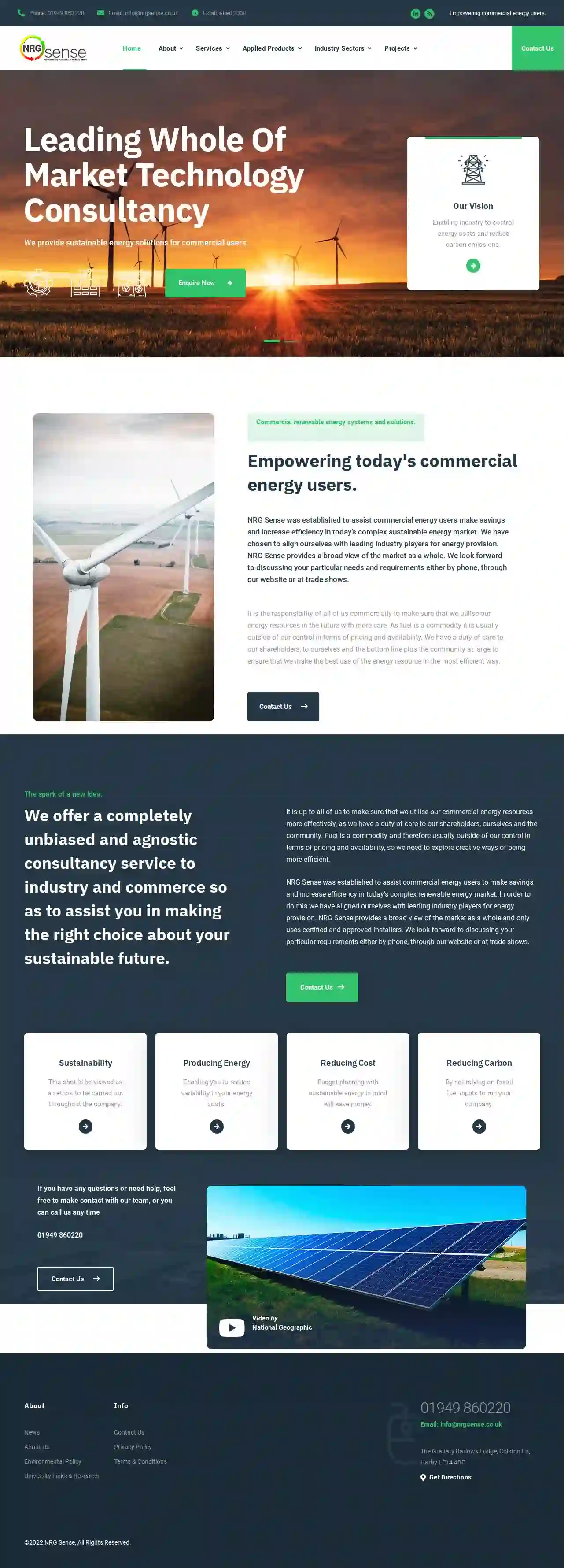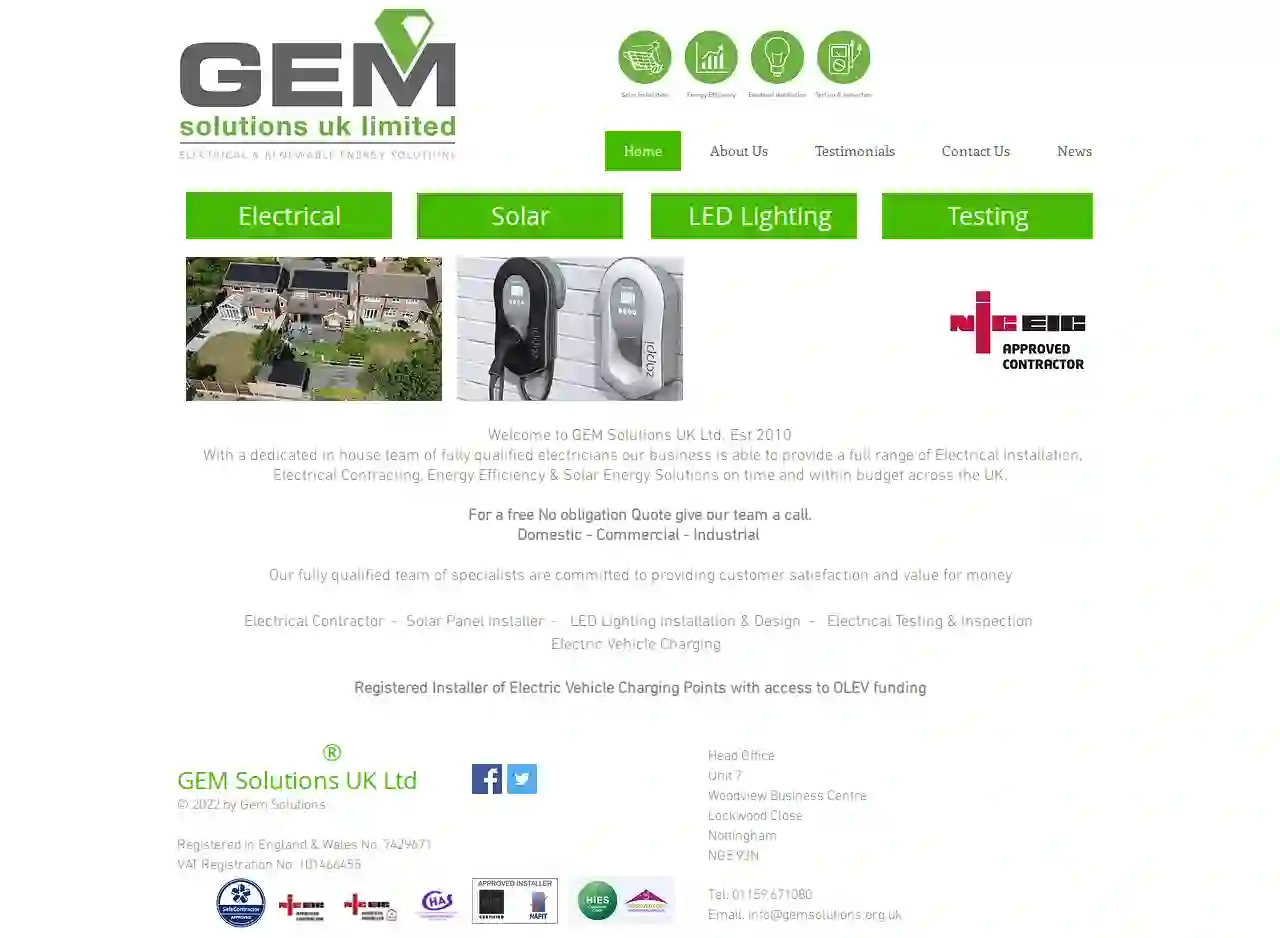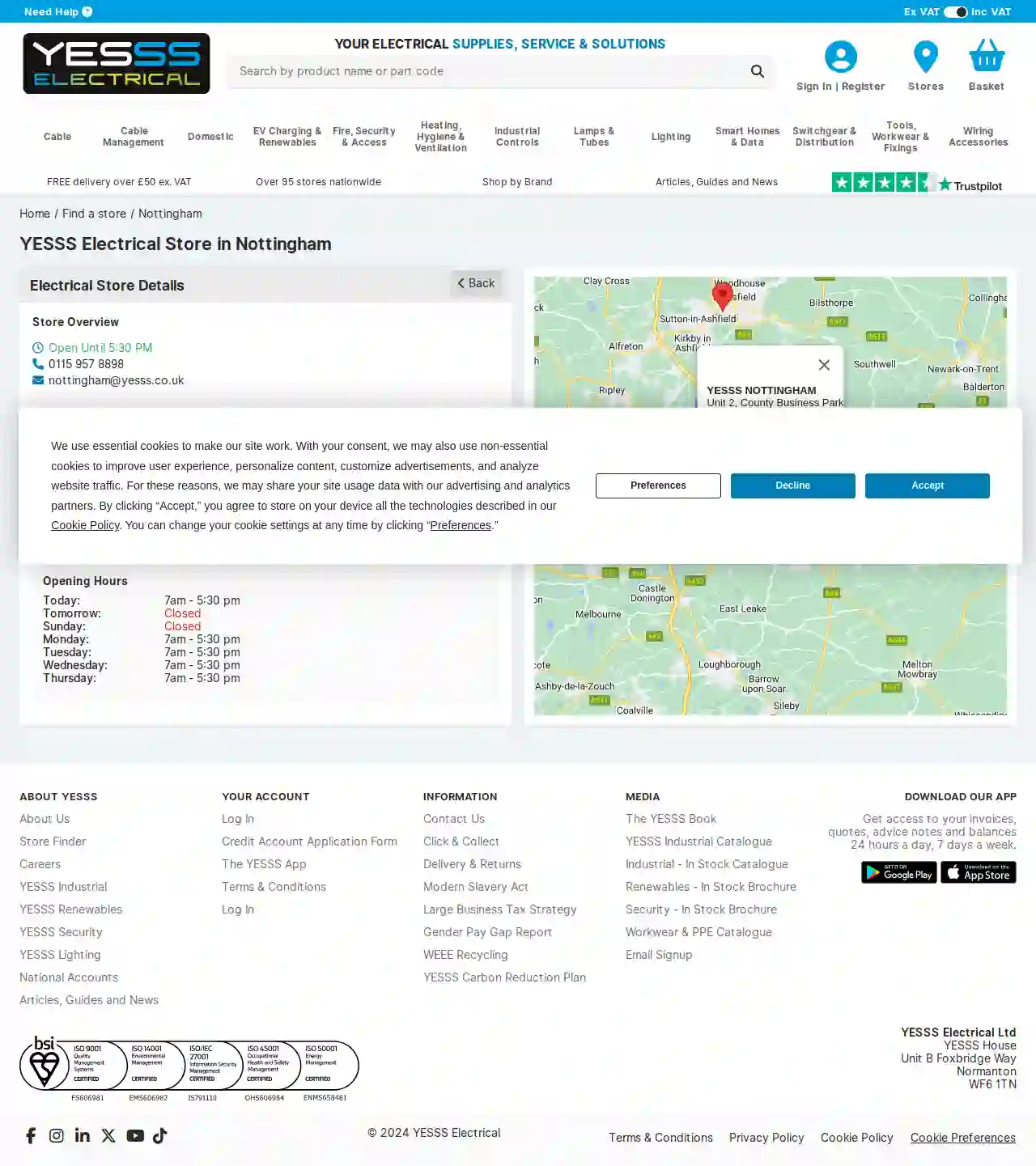Solar Installers Nottingham
Find top Local Solar Installers in Nottingham
Receive 3 FREE Solar Installers Near Me quotes for your project today! Compare profiles, reviews, accreditations, portfolio, etc... and choose the best deal.

Solar Fast - Nottingham
Letchmire Road, Unit 17, Allerton Bywater Network Centre, Castleford, WF10 2DB, GBSolar Fast is a UK-based solar energy company dedicated to providing expert customer support throughout the country. Their team of fully trained professionals, based in Yorkshire, is committed to resolving customer queries efficiently. Whether it's a simple question or a complex issue, customers can expect personalized assistance from the Solar Fast team, including access to senior staff if needed. The company emphasizes transparency and direct communication, ensuring customers always speak to real representatives, not call centers.
- Services
- Why Us?
- Gallery
Get Quote
Green Building Renewables | Solar Panels & Air Source Heat Pumps
53 reviewsDunnington, York, Unit 9 Chessingham Park, YO19 5SE, GBGreen Building Renewables is a trading name of GoEco Renewables Limited. We are a leading provider of renewable energy solutions, including solar panels, air source heat pumps, ground source heat pumps, underfloor heating, and electric vehicle charging. Our team of experts is dedicated to helping homeowners and businesses reduce their carbon footprint and save money on their energy bills. With a wide range of products and services, we can help you achieve your sustainability goals. Contact us today to learn more and get a free quote.
- Services
- Why Us?
- Accreditations
- Gallery
Get Quote
Greenio Ltd
5106 reviewsLong Bennington Business Park, Unit 1, Denham House, Newark, NG23 5JR, GBGreenio was established in 2013 by our founder and managing director, Anna Wooster-Mann. Founded with a vision and passion to educate and help homeowners and businesses on reducing their carbon footprint. Greenio is here to help you make the right choice and to reduce your day to day running costs, increase your efficiency and to help save the planet of course. This vision has now turned into a national leading renewable energy hub that works in a wide array of sectors including solar panel installation, EV charger installation, air source heat pumps, ground source heat pumps, LED lighting installation and biomass boiler service & maintenance. 2013 1500+ Year of Establishment Projects Completed Anna Wooster-Mann 15 Professional Employees Planet Founder & Managing Director of Greenio Ltd
- Services
- Why Us?
- Accreditations
- Our Team
- Testimonials
- Gallery
Get Quote
Spot On Solar Ltd
54 reviewsMelbourne, DE74, GBSpot On Solar Ltd, a local family run business based in Melbourne, Derbyshire. With over 15 years experience in supplying, installing and repairing Solar PV systems, we pride ourselves on providing a quality and affordable service to both domestic and commercial customers. We are MCS Certified installers, RECC approved and offer an insurance backed guarantee on every installation.
- Services
- Why Us?
- Accreditations
- Gallery
Get Quote
Air Quality Solutions
16 Commerce Square, Nottingham, NG1 1HS, GBAir Quality Solutions Ltd is a team of IAQM certified air quality consultants dedicated to helping planners, developers, and architects navigate the complexities of air quality regulations and secure planning permission for their projects. We offer a comprehensive range of air quality assessment services, from free baseline assessments to detailed dispersion modelling and impact assessments. Our expertise extends to emission mitigation strategies, dust management plans, and air quality neutral assessments, ensuring compliance with the latest environmental standards. We understand that air quality is a critical consideration in modern development, and we are committed to providing our clients with clear, concise, and actionable advice. Our innovative AQ Tool streamlines the assessment process, making it faster, more efficient, and cost-effective for everyone involved. Whether you are planning a small residential development or a large-scale infrastructure project, Air Quality Solutions Ltd has the expertise and experience to help you achieve your goals while minimizing your environmental impact.
- Services
- Why Us?
- Accreditations
- Our Team
- Gallery
Get Quote
Yü Energy
1.7610 reviewsCpk House, 2 Horizon Place, Nottingham Business Park, Mellors Way, Nottingham, NG8 6PY, GBYü Energy is a business energy expert that simplifies and saves on business energy and water. With over 30,000 businesses supported, they offer quick and easy quotes, tailored plans, and great service. Their energy advisors are ready to give you a great quote, and they'll guide you through the process of switching to Yü Energy. They also offer 100% renewable business energy, green energy plans, and carbon neutral gas options.
- Services
- Why Us?
- Accreditations
- Gallery
Get Quote
NRG Sense
The Granary Barlows Lodge, Colston Ln, Harby, LE14 4BE, GBNRG Sense was established to assist commercial energy users make savings and increase efficiency in today’s complex sustainable energy market. We have chosen to align ourselves with leading industry players for energy provision. NRG Sense provides a broad view of the market as a whole. We look forward to discussing your particular needs and requirements either by phone, through our website or at trade shows. It is the responsibility of all of us commercially to make sure that we utilise our energy resources in the future with more care. As fuel is a commodity it is usually outside of our control in terms of pricing and availability. We have a duty of care to our shareholders, to ourselves and the bottom line plus the community at large to ensure that we make the best use of the energy resource in the most efficient way.
- Services
- Why Us?
- Gallery
Get Quote
Generate Solar EV
511 reviews123 Main St, Nottingham, NG1 1AA, GBGenerate Solar EV is a team of solar panel installers based in Nottingham, working throughout the UK to install solar panels, battery storage, and electric vehicle chargers for domestic and commercial premises. Our accredited team designs systems to suit any property and provides estimated generation statistics to give you an idea of potential savings. We also install battery backup for solar, which comes in all different sizes, to make the most out of your solar panel installation. With years of experience in installing solar panels across the UK, we keep up to date with the latest advances in solar panel technology and understand the needs of our clients. We will always recommend the best array for your particular circumstances, whether it be for a domestic solar panel installation or a commercial installation.
- Services
- Why Us?
- Testimonials
- Gallery
Get Quote
GEM Solutions UK Ltd
54 reviewsWoodview Business Centre, Lockwood Close, Unit 7, Nottingham, NG5 9JN, GBGEM Solutions UK Ltd. was established in 2010. With a dedicated in-house team of fully qualified electricians, our business provides a full range of Electrical Installation, Electrical Contracting, Energy Efficiency & Solar Energy Solutions on time and within budget across the UK. Our fully qualified team of specialists are committed to providing customer satisfaction and value for money. We are Electrical Contractors, Solar Panel Installers, LED Lighting Installation & Design specialists, and Electrical Testing & Inspection experts. We are a Registered Installer of Electric Vehicle Charging Points with access to OLEV funding.
- Services
- Why Us?
- Gallery
Get Quote
YESSS Electrical Nottingham
4.29 reviewsNormanton, Unit B Foxbridge Way, WF6 1TN, GBYESSS Electrical is a leading electrical wholesaler providing technical assistance with industrial products and services. With over 10,000 products sourced from the UK's leading electrical brands, we offer competitive prices and all the electrical supplies you'll ever need regardless of your project or budget. Our fleet provides next day delivery to our local stores, offering you fast and flexible delivery options to suit your business or lifestyle. With over 95 stores nationwide open to both trade and public customers, we are the fastest growing electrical wholesaler in the country and the first stop for all your electrical supplies, services and solutions.
- Services
- Why Us?
- Accreditations
- Gallery
Get Quote
Over 3,485+ Solar Installers onboarded
Our solar installers operate in Nottingham & surrounding areas!
SolarCompaniesHub has curated and vetted Top Solar Companies in Nottingham. Find the most trustworthy business today.
Frequently Asked Questions About Solar Installers
- Your current energy usage
- The size of your solar system
- Your local electricity rates
- The amount of sunlight your panels receive
- Available net metering policies
- System size (measured in kilowatts, or kW)
- Type of solar panels (monocrystalline, polycrystalline, thin-film)
- Roof complexity (pitch, size, obstructions)
- Labor costs in your area
- Available incentives and rebates
- String Inverters: Connect multiple panels in a series (a 'string'). A cost-effective option for simple systems, but a single panel issue can affect the entire string.
- Microinverters: Attach to each individual solar panel, maximizing energy production even if some panels are shaded. They are more expensive but offer greater efficiency and monitoring capabilities.
- Power Optimizers: Similar to microinverters, but less expensive. They optimize the output of each panel and provide individual panel monitoring, but a central inverter is still required.
- Hybrid Inverters: Combine a solar inverter with a battery charge controller, allowing for seamless integration of battery storage.
Can I go completely off-grid with solar panels?
How much can I save on my electricity bill with solar panels?
What is the average cost of solar panel installation in UK?
What are the different types of solar inverters?
Can I go completely off-grid with solar panels?
How much can I save on my electricity bill with solar panels?
- Your current energy usage
- The size of your solar system
- Your local electricity rates
- The amount of sunlight your panels receive
- Available net metering policies
What is the average cost of solar panel installation in UK?
- System size (measured in kilowatts, or kW)
- Type of solar panels (monocrystalline, polycrystalline, thin-film)
- Roof complexity (pitch, size, obstructions)
- Labor costs in your area
- Available incentives and rebates
What are the different types of solar inverters?
- String Inverters: Connect multiple panels in a series (a 'string'). A cost-effective option for simple systems, but a single panel issue can affect the entire string.
- Microinverters: Attach to each individual solar panel, maximizing energy production even if some panels are shaded. They are more expensive but offer greater efficiency and monitoring capabilities.
- Power Optimizers: Similar to microinverters, but less expensive. They optimize the output of each panel and provide individual panel monitoring, but a central inverter is still required.
- Hybrid Inverters: Combine a solar inverter with a battery charge controller, allowing for seamless integration of battery storage.